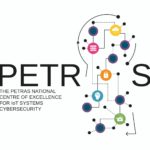Designing for HDI and Trust in Media IoT Futures
The turn towards personal data in traditional media, exemplified by the increase of Internet of Things (IoT) devices in users’ everyday lives, is driving innovation. This however presents a number of socio-technical implications, including challenges specifically for public service media, for whom audience trust is core to their remit and legitimacy. Subsequently, the BBC are investigating and experimenting with physical edge devices to study these challenges.
A key element here is the design and evaluation of novel data-driven media services supported by a personal data store – an ‘edge’ device that allows data portability – including a cross service media recommender. The BBC has formed cross-disciplinary teams and external partnerships to experiment with decentralised approaches to IoT data driven media innovation, to test the viability and value of responses through audience facing trials – providing unique opportunities to study these issues in a real-world context involving practical responses.
The University of Nottingham is an active partner in the BBC’s new forms of public value programme, having collaborated on earlier work, conducting formative research around the design of the recommender service. As this intervention turns to its deployment and first evaluation phase, this collaboration seeks to accelerate and extend the BBC’s research agenda around the user trial through the application of extensive and elaborate qualitative research methods to unpack user attitudes, actual behaviours and mass verdict around the value of edge solutions.
This project will contribute to cutting-edge research around edge services by exploring its applicability, inherent challenges and pointers for future research and design.
This project is funded by PETRAS 2 and the BBC and runs from 1 December 2020 until 31 May 2021.















